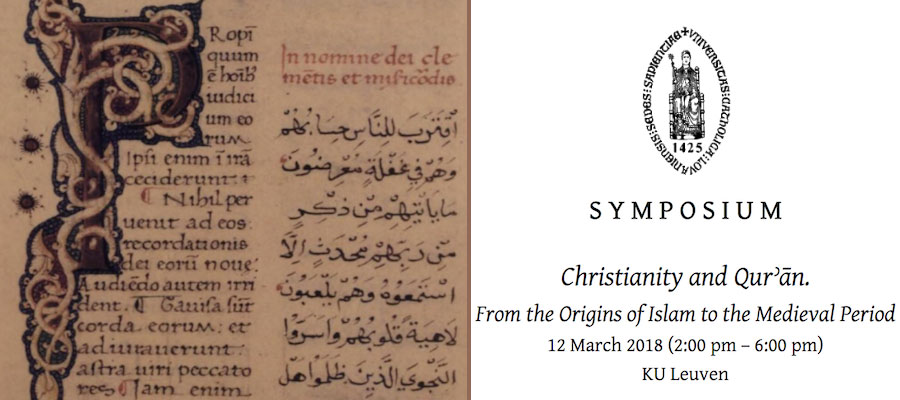Christianity and Qurʾān. From the Origins of Islam to the Medieval Period, KU Leuven, March 12, 2018, 2:00–6:00 pm
It is well known that Muslim linguistic and theological expressions made a variety of impressions upon the historical development of both Western and Eastern forms of Christianity. The Qurʾān, the founding text and cornerstone of the Islamic faith, has held a privileged place within this encounter, occupying a vivid locus of dialogue and confrontation. Indeed, since its appearance in the seventh century, this text has raised questions, fascination, and criticism in Christian contexts (as in Jewish contexts). Translations of the holy book of Islam, works, and theological responses in Greek, Latin, Arabic, Syriac were brilliant witnesses of this interest throughout the medieval era. Many scientific contributions from recent decades (critical editions, comparative theological works, bibliographical dictionary…) have cast new light on the use and interpretation of the Qurʾān by Christians in Europe or those living directly under Islamic rule. Parallel to these studies, other lines of research have renewed our understanding of the origins of the Qurʾān by locating it in the broad context of Late Antique religious literature. In particular, the works of historians and philologists have focused on how canonical and apocryphal Christian texts have played a major role in the development of quranic discourse.
In light of these studies, the present symposium has a twofold aim. First, it presents some of these new contributions to the history and genesis of the Qurʾān (Speakers 1, 2 & 3). Second, it aims to understand the reception and interpretation of the Qurʾān and its message in Western and Eastern Christianity (Speakers 4, 5 & 6).
This symposium was made possible by the collaboration between the Catholic universities of Notre Dame and Leuven and especially the active support of Prof. Thomas Burman and the Notre Dame’s Medieval Institute.
Organized by Prof. Dr. Mehdi Azaiez with the collaboration of Dr. Chaïma Ahaddour in partnership with the University of Notre Dame, Indiana (USA).
